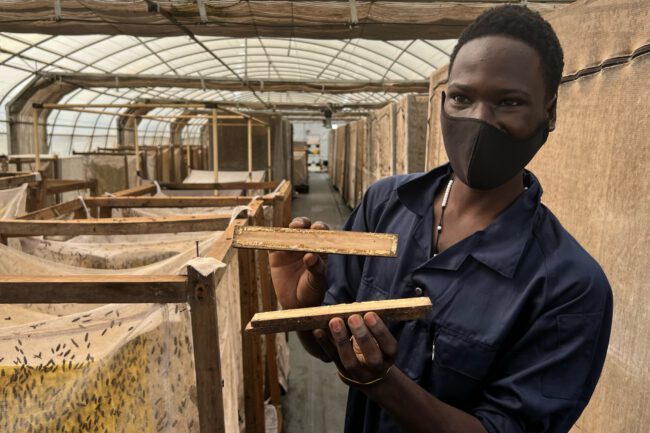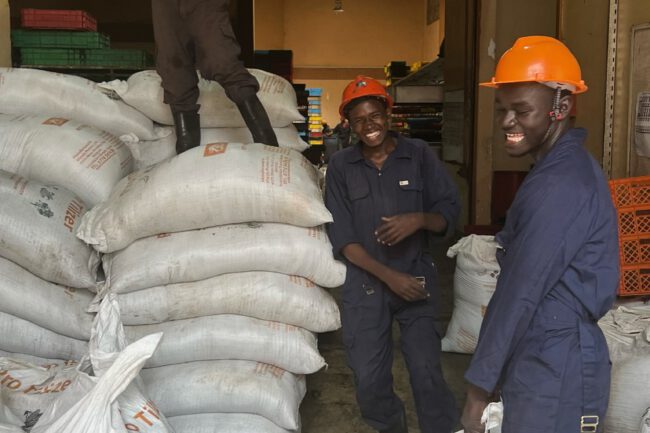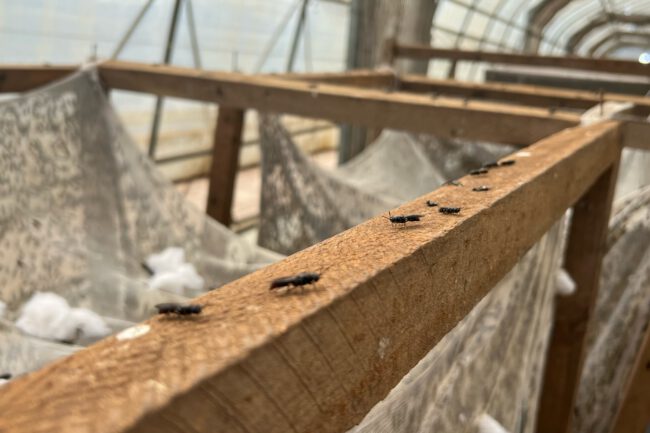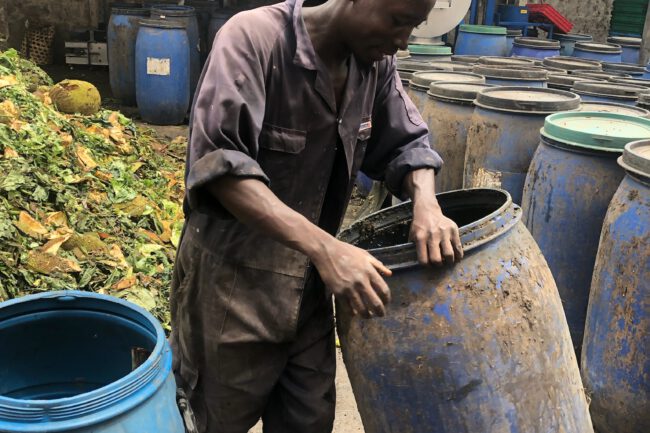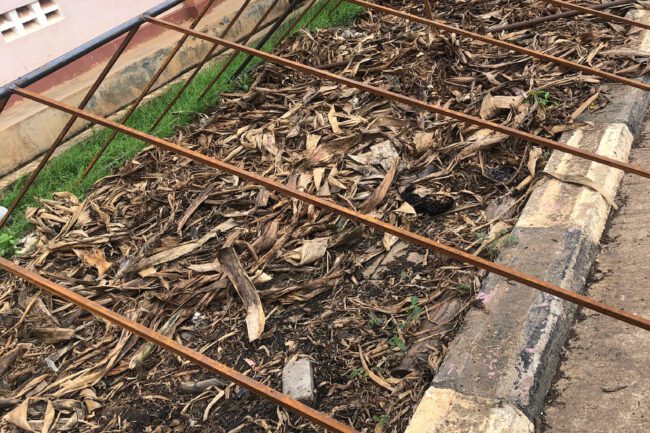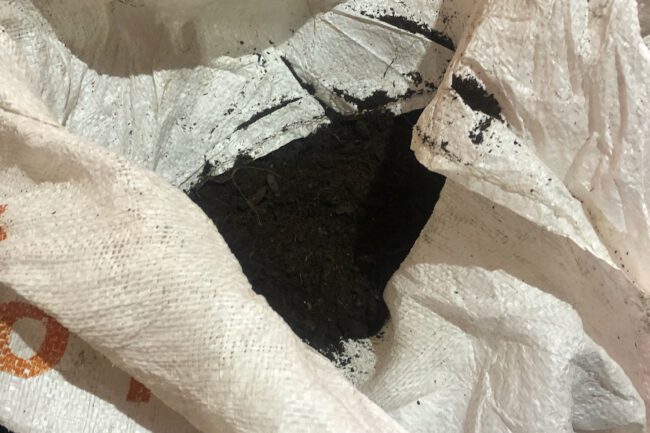Through our dedication to sustainability, we have built upon our ‘mixed-waste recovery center’ to ‘animal feed and fertilizer’ value chain in Uganda to now include private coffee waste. In this second iteration of CFYE support, we can expand our business model while bringing an innovative and complete circular waste-to-value model to empower youth through coffee waste processing, biochar production and the cultivation of larvae.
Note: Our funding agreement with Proteen Marula concluded before the project’s completion. However, we are excited about the progress made and look forward to seeing continued success and impact in the future.
The Problem
In Sub-Saharan Africa, 70% of organic waste is either dumped in landfills or burned with no value created. This accounts for nearly half of all carbon emissions (World Bank, 2019). Additionally, Ugandan farmers are highly affected by low-quality agricultural inputs (i.e. feed and fertilizer) with uncertain supply chains and fluctuating prices. This not only affects the security of their products but also greatly increases their carbon footprint. For example, Touton, a key exporter of coffee and cocoa, found that over 90% of their carbon dioxide emissions were linked to the agricultural phase of production which involved the cultivation and energy consumption of suppliers. These problems will only be exacerbated as waste production is estimated to increase threefold in developing countries by 2050.
A circular solution to waste management would enable 1500t of waste per month (organic waste, plastic, paper, and e-waste) to be recycled sustainably. Indeed, TraceX Technologies found that:
- Growing one kg of Arabica coffee and exporting it results in an average carbon emission of 15.33kg. Regulating the use of water and energy and using clean fertilizers when milling reduces emissions to 3.51kg of CO2e per kg of coffee.
- One espresso of coffee has a carbon footprint of 0.28kg, however, if the beans are cultivated in a sustainable manner, the emission reduces to 0.06kg.
Therefore, a circular solution to waste management will not only reduce carbon emissions but also add much-needed security and stability to the agricultural processing industry.
The Solution
Our project tackles this inefficiency through an integrated waste-to-value supply chain that collects, sorts, and processes organic and non-organic waste. Our solution primarily creates contract jobs for young people in the waste management sector and improves jobs in the agricultural industry. We have built upon our organic waste-to-value initiative of larvae cultivation, to address the harmful waste created in coffee production and processing.
We will partner with a coffee processing plant, to create organic fertilisers at carbon-negative washing stations. The larvae from our breeding hub aid in creating valuable agricultural products. Not only do the eggs enable smallholder farmers to grow their own protein-rich feed and develop their own fertilizer, but they can also increase cash flows by matching the high market demand for larvae. Furthermore, private coffee waste can be processed to create high-quality animal feed concentrate, organic fertilizer, and pet food for broader markets.
Our project will:
- Create over 100 jobs and Improve over 7,000. They will be suitable for youth, women and men, of varying degrees of skill
- Produce sustainable and profitable fertilizer and animal feed
- Avoid significant landfill emissions
We also aim to process 150k m3 of horticulture waste into biochar and generate carbon credits. By doing so, we ensure that for every kilogram of product that Proteen produces, we avoid 7kg of CO2eq emissions and for every tonne of biochar we make, we negate 2.3 t of CO2eq.
Additionality
With CFYE support, the project will be better designed, proceed more quickly, and reach more young people than it otherwise would have. CFYE support will allow us to scale up our current initiatives and de-risk our business model by ensuring that our main input, organic waste, can be more easily secured.

